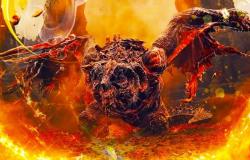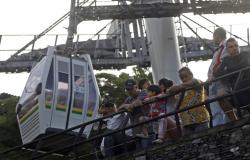The 1950s had as a backdrop the sharpening of the East-West contradiction, represented in the confrontation between the United States and the Soviet Union.
The mirage of being the great winner in the Second World War faded to the extent that social conditions, on both sides, were differentiated based on economic results and scientific progress.
The possibility of communist expansion served to justify internal repression in the United States itself, with the application of McCarthyism, and towards the rest of the countries the common formula was the development of coups d’état. The case of Guatemala, in 1954, was one of those sad examples.
The agricultural-based Central American country was essentially controlled by the Yankee banana monopoly United Fruit Company, which had managed to put its tentacles over immense plots of land, in addition to being the main shareholder of the central railroad.
The terrible living conditions of the population and the surrendering role of the different national governments gave the possibility of victory, in 1952, to the progressive government of Jacobo Árbenz, who promoted agrarian reform and other measures of popular benefit.
His proposal, although it did not eliminate the fundamental causes of exploitation, affected the regime of colonial oppression imposed by imperialism, a sufficient reason for the beginning of a broad plot with the objective of its overthrow. The Central Intelligence Agency, with the consent of the United States Government, would begin to prepare an invasion.
The CIA should not appear as the main promoter, which is why the US Embassy was the coordination center from which all the work of internal subversion began.
The resources would come through the banana monopoly and the international campaign would be directed by the State Department, which would use the UN and the OAS as platforms for its accusations of an international communist conspiracy.
On June 18, 1954, the invasion began that, led by Carlos Castillo Armas, would put an end to the experience of democratic transformation of a suffering people, who were made to pay dearly, like others on the continent, for the attempt to think on their own. sovereign country.
Seven years later they would repeat the formula against a small Caribbean island, which after a bloody struggle, managed to defeat imperialist domination. They could not forgive him for having also carried out, right under the nose of the empire, an agrarian reform.
The threat of the example that had been truncated in Guatemala seemed to revive; The same methods were then repeated: subversion, diplomatic pressure and invasion to impose a provisional government. made in USES.
Only this time it was different. They faced a prepared, armed, conscious people, with a political leadership capable of understanding the lessons that the history of the continent provided.
Seven decades have passed since an event that marked Latin America, which had sinister continuity in the Plan Cóndor of the 70s, and made possible the rise of several dictatorships in the region.
The key is not to forget: the experience can be reissued, that threat is latent every time the oligarchy and imperialism see their interests in danger.






